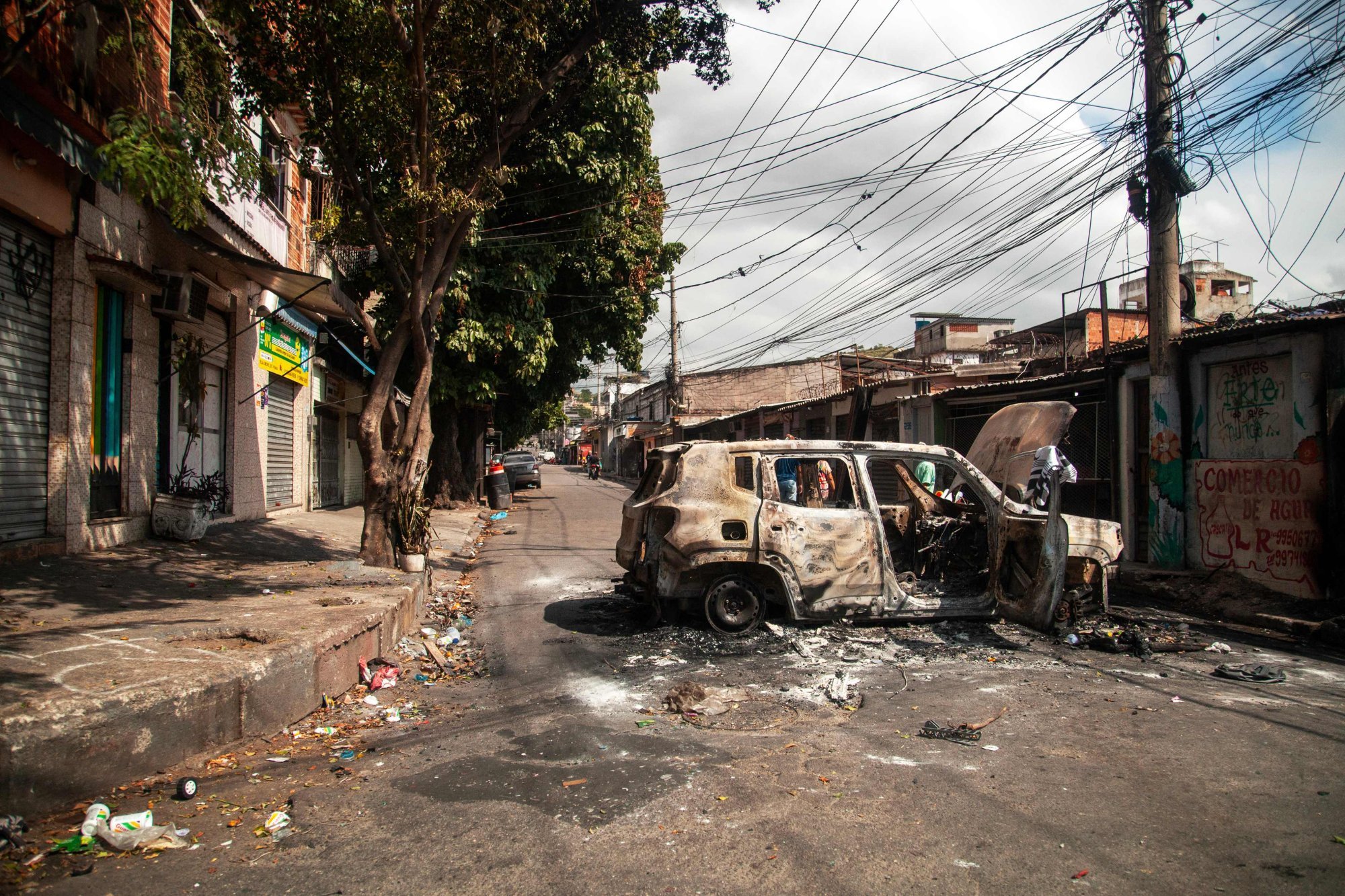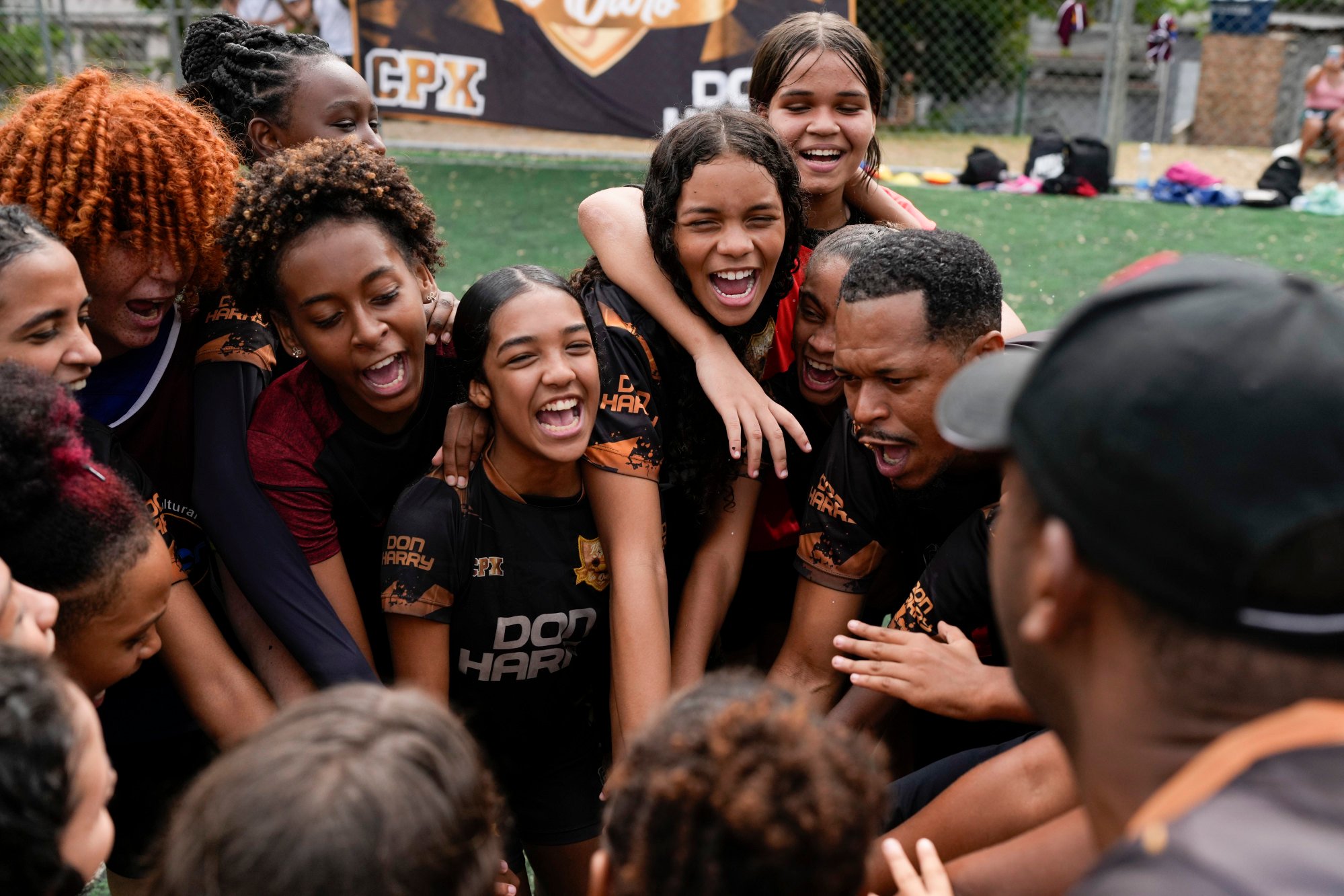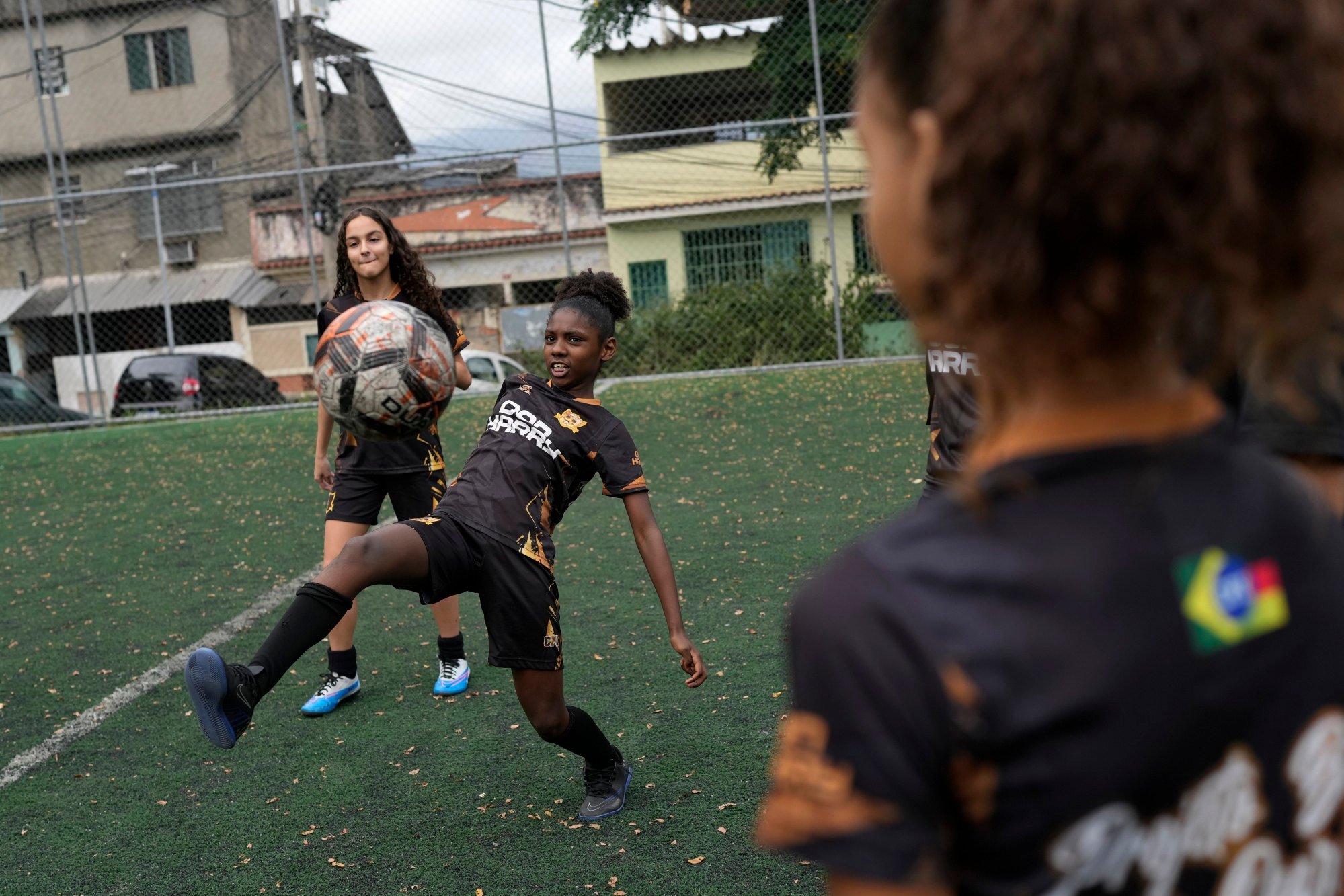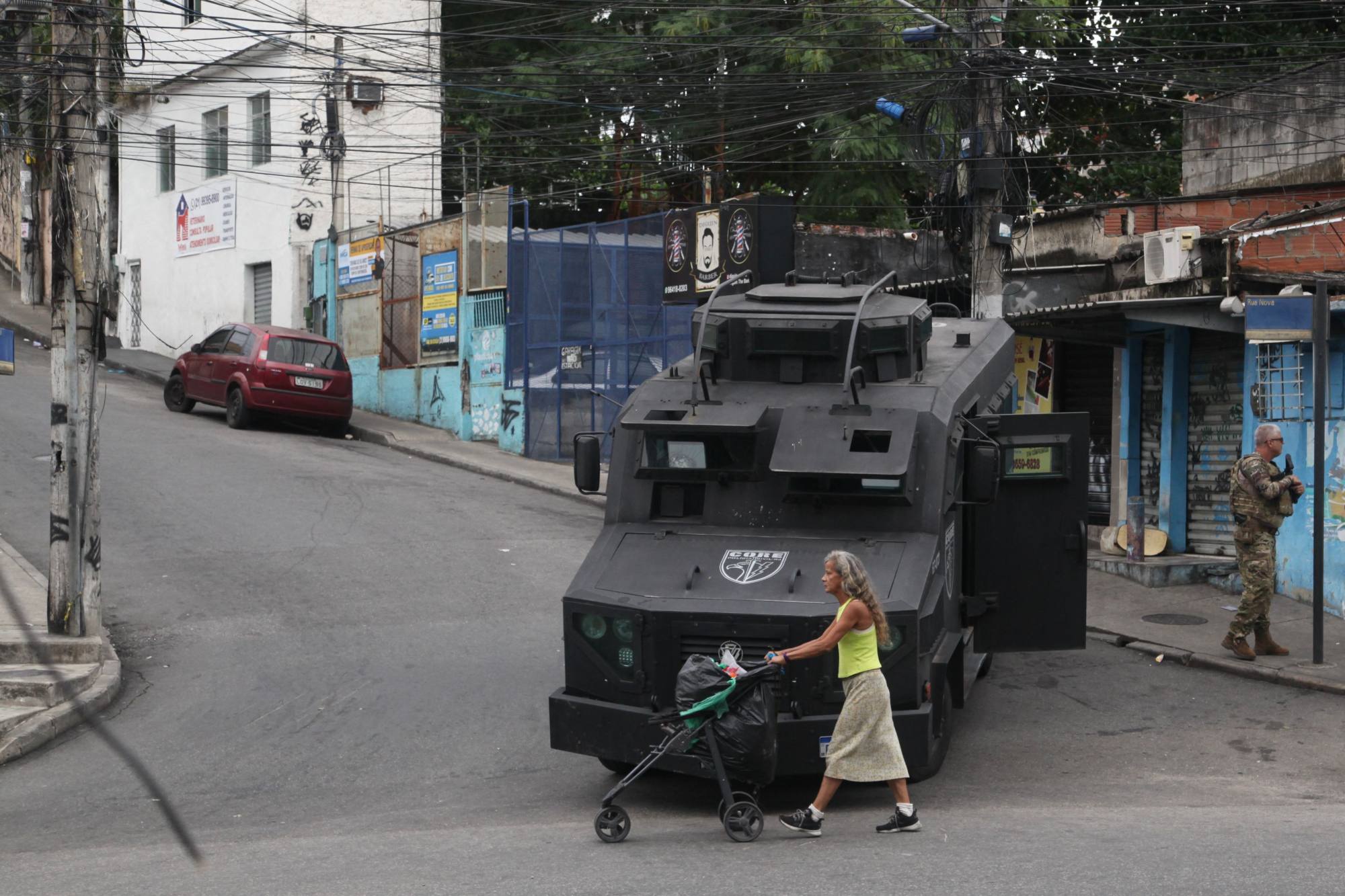Local organisers have suggested that both the opening match and the final are likely to be played at the 78,000-seat Maracana Stadium that staged the final matches of the 1950 and the 2014 men’s football World Cups.
Teenager dos Santos knows the hurdles for her to ever play for Brazil remain enormous – in 2027 or later. She does not have a professional club to play for, she only trains twice a week, and her nutrition is not the best due to limited food choices in the favela.
Most importantly, she often cannot leave home to play when police and drug dealers shoot at each other in Complexo do Alemao.

Still, she is excited and hopeful about Brazil hosting the Women’s World Cup, resulting in a big boost to her confidence.
“We have a dream [of playing for Brazil in the Women’s World Cup], and if we have that chance it will be the best thing in the world,” dos Santos told The Associated Press this week after a training session in the Complexo do Alemao.
She and about 70 other young women in the Bola de Ouro project train on an artificial grass pitch in a safe region of the 3 sq km-long (1.15 sq mile) community.
If not on the pitch, Dos Santos and her teammates will be happy enough just to attend games of a tournament they could only dream of watching up close until Fifa members voted for Brazil over the Germany-Netherlands-Belgium joint bid. The Women’s World Cup was played for the first time in 1991 and will have its 10th edition in 2027.

A five-time champion in men’s soccer, more than any other country, Brazil has yet to win its first Women’s World Cup trophy. By then, it is unlikely superstar Marta, aged 38, will be in the roster. Dos Santos and thousands of young female footballers who have overcome sexism to take up the sport are keen to get inspiration from the six-time Fifa player of the year award winner and write their own history on home soil.
As many female footballers experience in Brazil, dos Santos and her teenage teammates rarely play without boys on their teams. Until recently, they also had to share the pitch with five-year-old girls, which did not allow the older players to train as hard as they would like.
“[The Women’s World Cup in Brazil] makes us focus even more in trying to get better. We need to be able to play in this,” said 16-year-old Kamilly Alves dos Santos, Kaylane’s sister and also a player on the team. “We need to keep training, sharing our things.”
Their team, which has already faced academy sides of big local clubs like Botafogo, is trained by two city activists who once tried to become players themselves.

Diogo Chaves, 38, and Webert Machado, 37, work hard to get some of their players to the Women’s World Cup in Brazil, but if that is not possible they will be happy by keeping them in school.
Their non-profit group is funded solely by donations.
“At first, basically, the children wanted to eat. But now we have all of this,” said Chaves, adding that the project began three years ago. “We believe they can get to the national team. But our biggest challenge is opportunity. There’s little for children from here, not only for the girls.”
Machado said the two coaches “are not here to fool anyone” and do not believe all the young women they train will become professionals.
“What we want from them is for they to be honest people, we all need to have our character,” Machado said. “We want to play and make them become nurses, doctors, firefighters, some profession in the future.”

The two dos Santos sisters, as do many of their teammates, believe that reaching the Women’s World Cup as Complexo do Alemao residents is possible. Brazil has more than 100 professional women’s soccer teams, with other players living in favelas, too.
But it will not be easy.
“Sometimes I have to cancel appointments because of shootings, because there’s barricades on fire,” she said. “Sometimes police tell us to go back home, they say we cannot come down and point their guns to me, to my mother,” Kamilly said.
Her sister hopes the pair will overcome the violence, against the odds.
“I want to earn my living in soccer, fulfil all dreams,” Kaylane says. “And I want to leave the Complexo do Alemao. I want to make it happen.”

